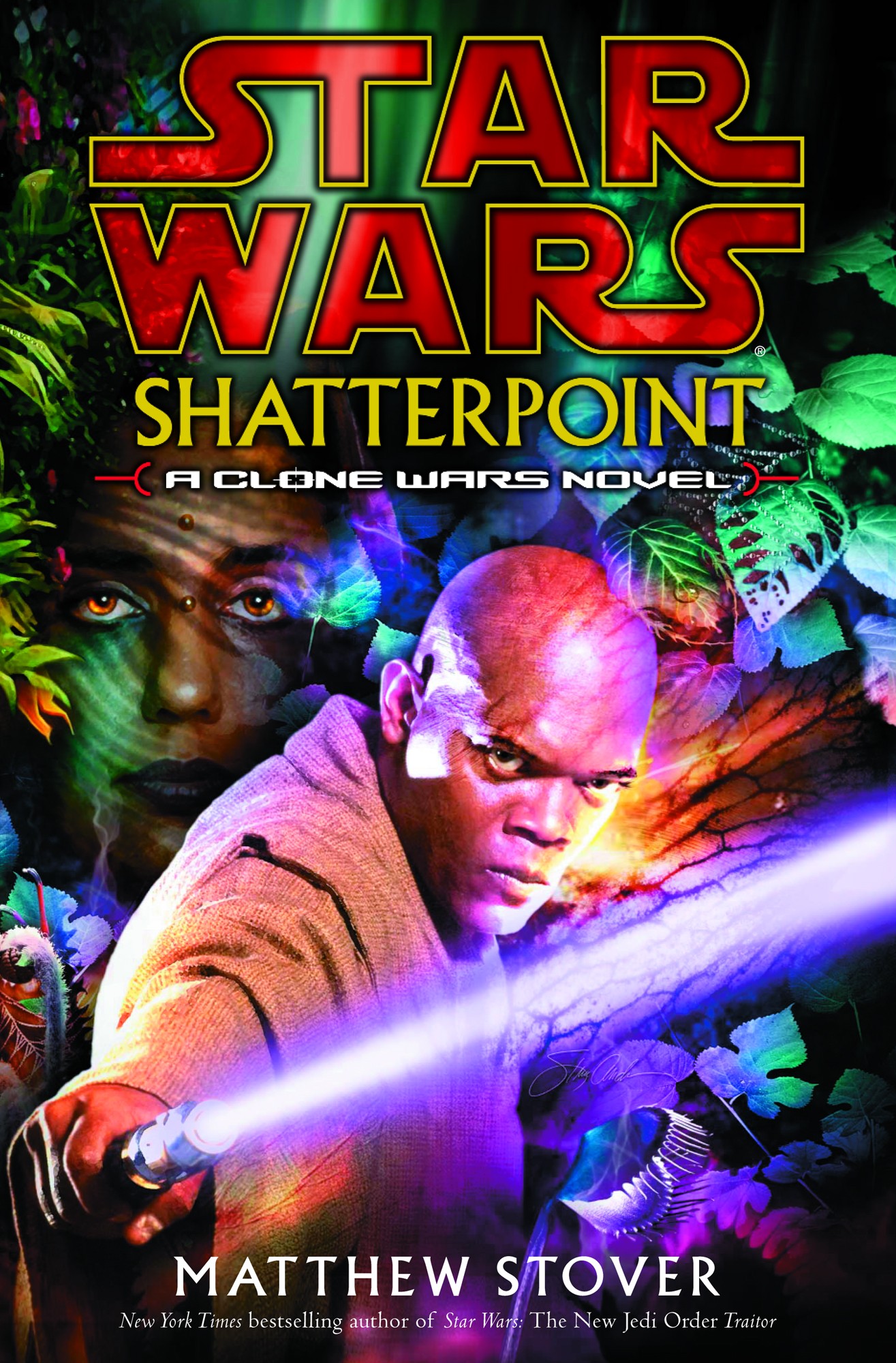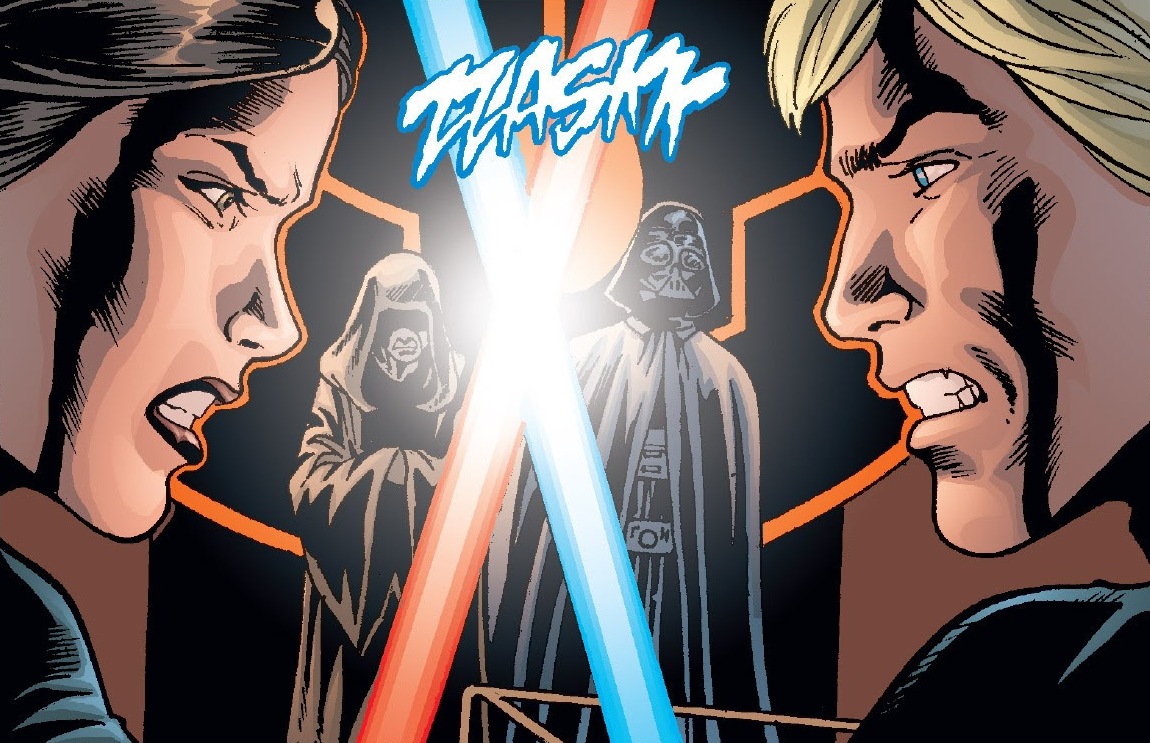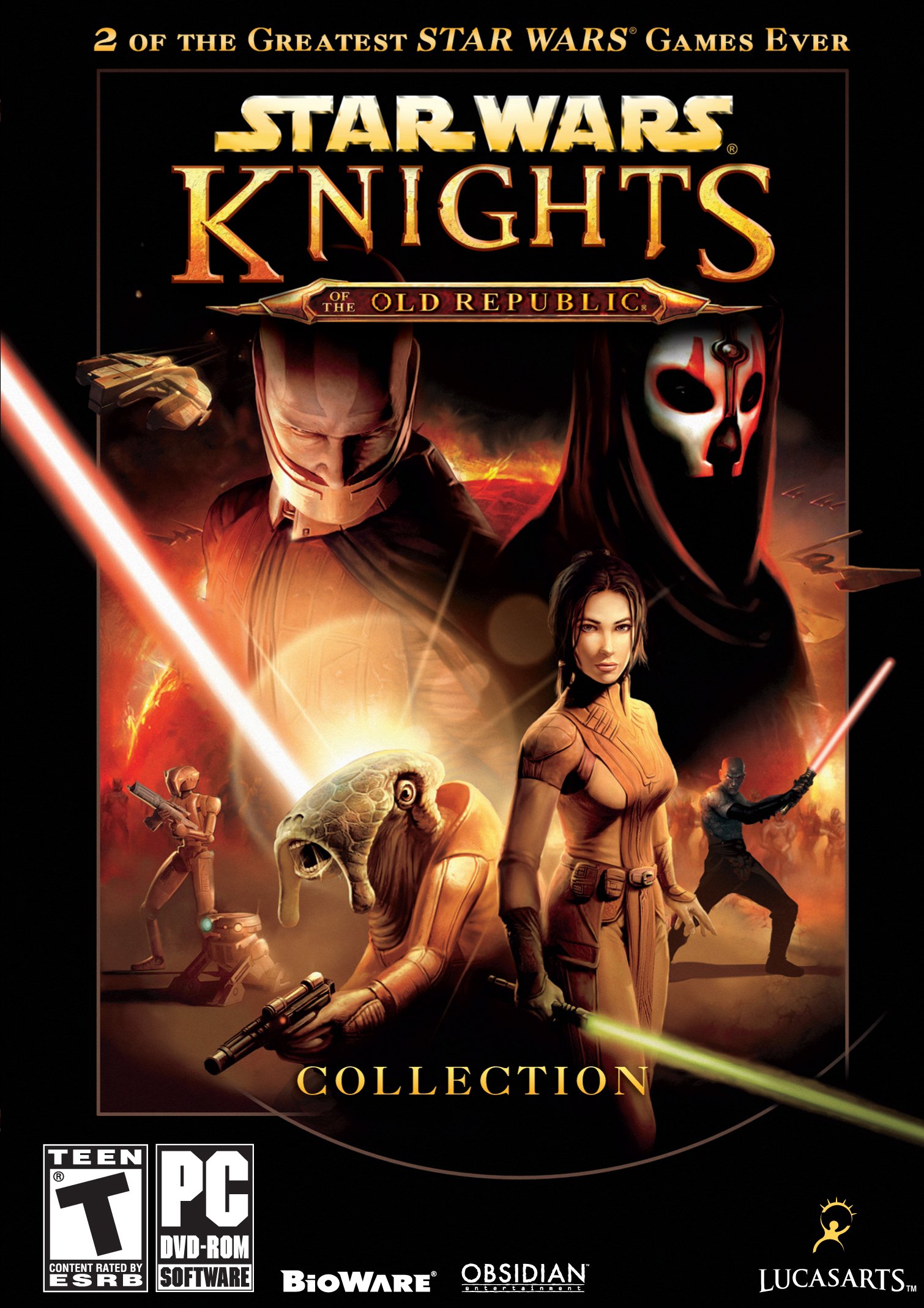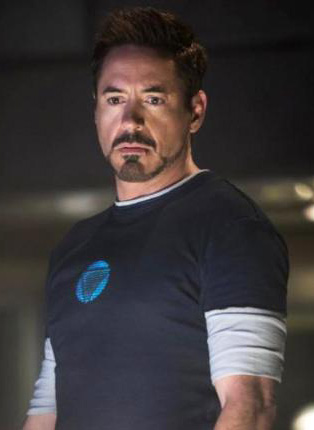
I can remember when I first read from Shatterpoint. It was a preview, in the back of Force Heretic: Refugee, for the first-ever Clone Wars book. At the time, my enthusiasm for Star Wars was at a low ebb; I’m not sure it was for any particular reason, but I had been sustaining an all-consuming fandom for six years, and The New Jedi Order had been dominating the Expanded Universe for years and changing the universe in ways I wasn’t sure I was ready for and was mired in the particularly dull Force Heretic Trilogy. I was just starting to get a little burnt out and needed a breath of fresh air. That Shatterpoint preview was it.
Immediately, the prose was punchy, atmospheric — it radiated attitude. As I read, Mace Windu — a guy we had seen in the movies but didn’t know that much about — landed on his homeworld, a new planet that leapt from the page with unique character, a jungle world so rancid its cities must live under sterilization fields. Then the action hit. Windu, naked after going through the probiotic showers required after arrival, finds a couple thugs harassing the other naked travelers in the locker room, stealing their valuables. Coldly, indifferent to the vulnerability of his nudity, Windu tough-talks the thugs, a supremely confident badass warning off weaklings he doesn’t want to bother with — but kind of does. When they go for him, he knocks them senseless in a vivid, expert action scene. It turns out they’re the local cops; that’s the kind of world this is. Windu goes on to meet his Republic contact; on the street, they’re caught up in some sort of riot, a fast-expanding street battle, and she’s hit with a blaster bolt. As Windu kneels over her, trying to help her, the local militia come up.
The militia behind him clattered to a stop. “You! Korno! Stand away from that woman!”
He glanced back. Six of them. Firing stance. The lightpole at their backs haloed black shadow across their faces. Plasma-charred muzzles stared at him. “This woman is wounded. Badly. Without medical attention, she will die.”
“You’re no doctor,” one said, and shot him.



 Heath Ledger as the Joker.
Heath Ledger as the Joker.